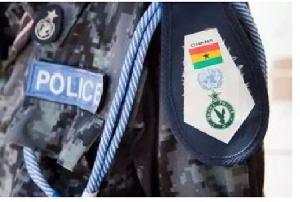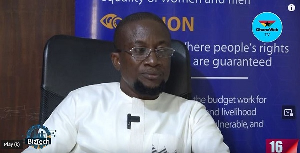There is a common knowledge that human behavior flows from three main sources: desire, emotion, and knowledge. The case at hand now is based on emotions and not knowledge or desire. Practice self-awareness, self-evaluation, and self-improvement. If we are aware that our manners - language, behavior, and actions - are measured against our values and principles, we are able to more easily embody the philosophy, leadership is a matter of how to be, not how to do.
The clash between Ghana Police Service and residence at Oboasi that led to several people sustaining injuries was unfortunate and need not to repeat itself again no matter the circumstance. Charging a police officer with a crime after the death of a civilian is incredibly rare, their core responsibility is to protect life and properties of the citizenry. There are plenty of guidelines for use of force by police, but it often boils down to what the officer believed when the force was used (something that is notoriously difficult to standardize), regardless of how much of a threat actually existed.
When a police officer kills someone on the job, there's a two-track investigation. That's because there are actually two different sets of standards that govern when a police officer can use deadly force. One set of standards is state law, informed by a couple of Supreme Court precedents that lay out the circumstances under which law enforcement officers are justified in using lethal force on suspects. The other set of standards is the policy of the officer's police department, which tells its employees when it is and isn't appropriate for them to use force.
Constitutionally, "police officers are allowed to shoot under two circumstances,” The first circumstance is "to protect their life or the life of another innocent party" — what departments call the "defense-of-life" standard. The second circumstance is to prevent a suspect from escaping, but only if the officer has probable cause to think the suspect poses a dangerous threat to others.
The country could not continue to waste its resources in providing logistical and welfare needs for the police and still be experiencing unprofessional conduct from some of the personnel. I believed it is better to have one professional police officer than have 32,000 who are not professional. The fight against indiscipline must begin with the security agencies, they could not be indiscipline and expect to discipline people, and they must do the right thing in the interest of the country.
It's often said that no other profession demands a higher ethical standard than that of law enforcement. Regardless of whether or not there are other careers that require a similar dedication to doing the right thing, it is undeniable that there is an understandably tremendous degree of expectations placed upon police officers, and rightly so. The fact is that the public scrutinizes police officers more than most other professions, either because they’re cynical or hope to catch them screwing up or because they're hopeful and are looking for a good example and a strong leader. In either case, it's up to the officer to be above reproach in both his public and private life.
Opinions of Wednesday, 17 October 2018
Columnist: Issah Fuseini



















